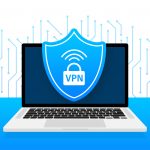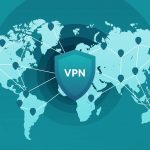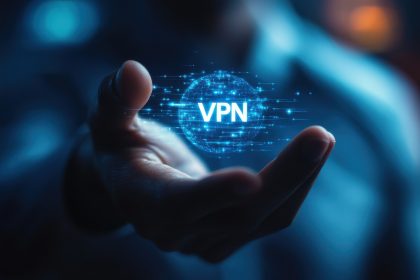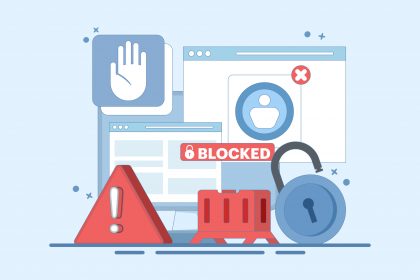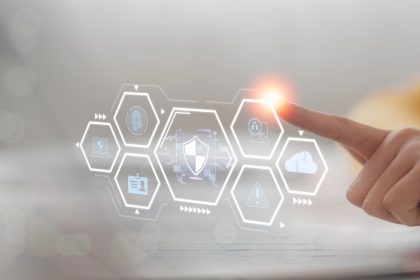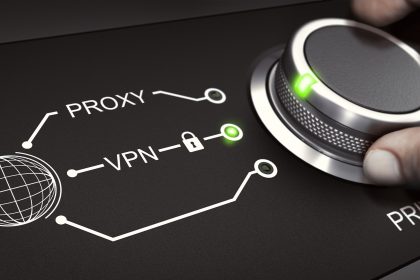In today’s digital age, online privacy is more important than ever. Many users are looking for ways to protect their data and online activities from prying eyes. A Virtual Private Network, or VPN, is a popular tool that promises to enhance your online security and anonymity. But what does a VPN actually hide? This article delves into the specifics of how a VPN can protect your location, IP addresses, and browsing history, helping you understand the true extent of its capabilities.
What VPNs Can Hide
Hiding Your Browsing History
One of the key benefits of a VPN is its ability to hide your browsing history. Your browsing history contains a record of all the websites you’ve visited, searches you’ve made, and content you’ve accessed online. Without a VPN, your ISP and even websites can track your browsing activity, potentially compromising your privacy. However, when you use a VPN, your internet traffic is encrypted and routed through a VPN server, masking your IP address and concealing your browsing history from prying eyes. This means your ISP cannot see which websites you are visiting, and websites can’t track your activity back to your real IP address. With a good VPN, you can browse the internet with greater peace of mind, knowing your browsing history is shielded from unwanted surveillance. This even helps hide the fact that you are connecting to a VPN.
Masking Your IP Address
Masking your IP address is a fundamental function of a VPN, and it plays a crucial role in enhancing your online privacy. Your IP address is a unique identifier that can be used to track your online activities and even approximate your physical location. When you connect to a VPN server, your real IP address is masked, and you are assigned a new VPN IP address associated with the VPN server’s location. This means that any website or service you access will see the VPN’s IP address instead of your own. By masking your IP address, a VPN prevents websites, advertisers, and other third parties from tracking your online behavior and collecting data about you. This is particularly useful if you want to browse the internet anonymously or access content that is restricted in your region. Masking your real IP address ensures that your online activities are not directly linked back to you, providing a significant layer of protection against surveillance and tracking.
Concealing Your Physical Location
A VPN can help you hide your location, giving you greater control over your online privacy. When you connect to a VPN server, your real IP address is masked, and you are assigned a new IP address based on the location of the VPN server. This makes it appear as though you are browsing from the VPN server’s location, effectively concealing your actual geographic whereabouts. For example, if you connect to a VPN server in another country, websites and online services will believe you are located in that country, regardless of your true location. This can be particularly useful for accessing geo-restricted content, preventing websites from tracking your movements, and protecting your privacy while traveling. By changing your IP address through a VPN connection, you can effectively spoof your location and maintain a higher level of anonymity online. Choosing a VPN server in another country helps hide your location.
What VPNs Cannot Hide
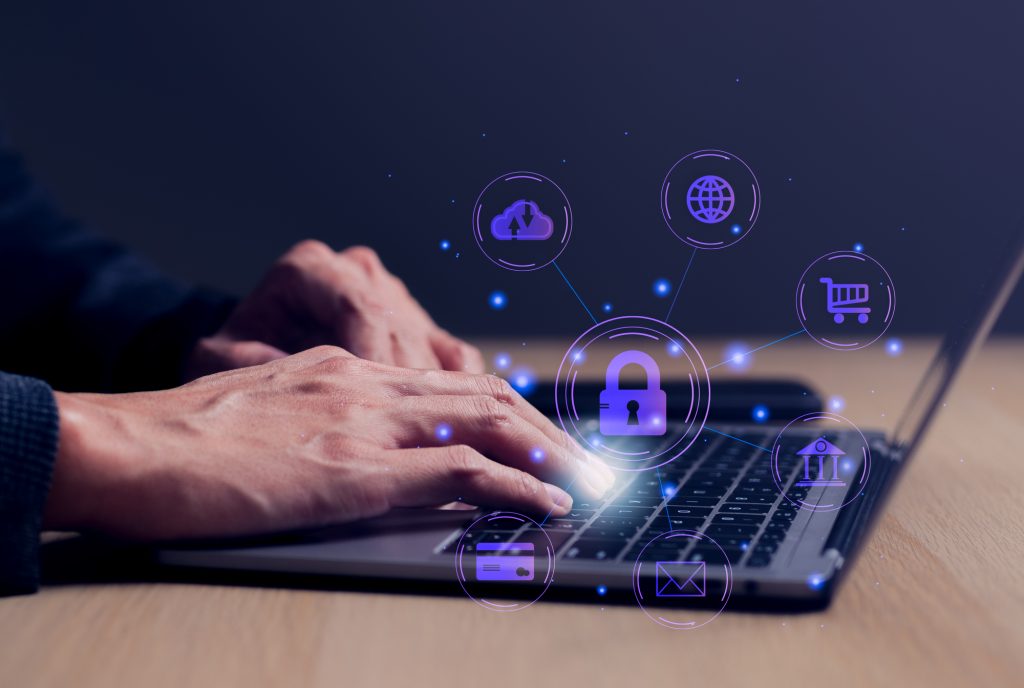
While a VPN offers significant privacy benefits, it’s essential to understand that VPNs don’t hide everything. It cannot protect you from your own actions or malware. Although a good VPN hides your IP address and encrypts your internet traffic, it cannot protect you from your own actions. If you voluntarily provide personal information on a website or through an online service, that data is no longer protected by the VPN. Additionally, a VPN cannot protect you from malware or phishing attacks; you still need to practice safe browsing habits. Websites can also use browser fingerprinting techniques, which analyze your browser settings and plugins to identify you even if you mask your IP address. Ultimately, while a VPN enhances your online privacy, it’s not a foolproof solution and should be used in conjunction with other security measures and safe online practices, and to hide your browsing activity.
VPNs and Their Functionality
What is a VPN?
A VPN, or Virtual Private Network, is a service that establishes a secure and encrypted connection between your device and the internet. When you use a VPN, all your internet traffic is routed through a VPN server, effectively masking your IP address and hiding your online identity from your internet service provider (ISP) and other potential snoopers. This process not only encrypts your data but also makes it appear as though your internet traffic is originating from the VPN server, adding an extra layer of privacy. By using a VPN, you can create a private network over a public internet connection, enhancing your security, especially when using public Wi-Fi networks. Ultimately, VPNs help protect your online activities and sensitive information.
How VPNs Hide Your Location
One of the primary benefits of a VPN is its ability to hide your location. When you connect to a VPN server, your real IP address is masked, and you are assigned a new IP address based on the location of the VPN server. For example, if you connect to a VPN server in another country, your online activity will appear to originate from that country, effectively hiding your actual geographic location. This is particularly useful if you want to access content that is restricted in your region or if you simply want to prevent websites and services from tracking your physical whereabouts. By masking your real IP address, VPNs can help you hide your location and maintain a greater degree of anonymity online.
The Role of IP Addresses in Online Privacy
IP addresses play a critical role in online privacy because they serve as unique identifiers for your device on the internet. When you use a VPN, the VPN server masks your IP address, effectively hiding it from the websites and services you access. Instead of your real IP address, the VPN IP address is visible, making it much more difficult to track your online behavior back to you. This masking process is crucial for maintaining online privacy and preventing unwanted surveillance. By changing your IP address through a VPN connection, you can significantly enhance your anonymity on the internet.
Choosing a Good VPN
Key Features of a Good VPN
When selecting a VPN provider, it’s crucial to prioritize key features that ensure your online privacy and security. Several factors contribute to a good VPN, including:
- Strong encryption protocols to protect your data, ideally using protocols like OpenVPN or WireGuard.
- A no-log policy, ensuring the VPN service does not keep records of your browsing history or IP addresses.
- A wide selection of VPN servers located in various countries, allowing you to mask your IP address.
- Fast and reliable connections to avoid slowing down your internet speed.
- Leak protection.
These features are crucial if you want to hide your browsing activity from your internet service provider.
How to Evaluate VPN Providers
Evaluating VPN providers requires a thorough assessment of their policies, features, and performance. Start by carefully reviewing the VPN provider’s privacy policy to ensure they have a strict no-log policy. Look for independent audits that verify their claims of not storing user data. Test the VPN’s speed and reliability by connecting to various VPN servers and measuring the download and upload speeds. Check the VPN’s security features, such as the encryption protocols used and the availability of a kill switch, which automatically disconnects your internet connection if the VPN connection drops. Read user reviews and expert opinions to get an unbiased perspective on the VPN provider’s performance and customer support. Lastly, consider the cost of the VPN service and whether they offer a money-back guarantee, allowing you to test the service risk-free. Ultimately, a good VPN hides as much information as possible.
Importance of Encryption in Hiding Online Activities
Encryption is paramount when it comes to hiding your online activities and safeguarding your privacy with a VPN. When you use a VPN, your internet traffic is encrypted, meaning it is scrambled into an unreadable format. This encryption prevents your ISP, government agencies, and other third parties from monitoring your browsing history, search history, and other online activities. Strong encryption protocols, such as AES-256, ensure that your data is virtually impossible to decrypt, even if intercepted. Encryption is especially crucial when using public Wi-Fi networks, which are often unsecured and vulnerable to eavesdropping. By encrypting your internet connection, a VPN masks your IP address and ensures that your sensitive information, such as passwords and financial details, remains private and protected. Ultimately, strong encryption is what helps hide your browsing activity and ensures that the VPN provides a secure and anonymous online experience, and is important for users who want to hide their location.
Limitations of VPNs
Risks of Using Free VPNs
There are significant risks associated with using free VPNs, including the potential for data collection and malware. Many free VPN providers monetize their services by collecting and selling your browsing history and personal data to third parties. This completely defeats the purpose of using a VPN to hide your browsing and protect your privacy. Some free VPNs may even contain malware or inject ads into your browsing sessions, compromising your security further. Additionally, free VPNs often have slower connection speeds, limited VPN server locations, and data caps, making them less effective for bandwidth-intensive activities like streaming or downloading. It’s generally advisable to choose a reputable paid VPN provider with a transparent privacy policy and a proven track record of protecting user data. Choosing a paid VPN helps hide as much of your data as possible. Getting a good VPN is worth the cost.
VPN Logs and Privacy Policies
VPN’s logging policy is crucial for ensuring your online privacy. A truly no-log VPN ensures that your online activities are completely private and cannot be traced back to you. Some VPN providers claim to have a “no-log” policy, meaning they don’t store any information about your browsing history, IP addresses, or online activities. However, it’s important to carefully review the VPN provider’s privacy policy to verify these claims. Some VPNs may keep connection logs, which include timestamps and IP addresses of the VPN server you connect to, even if they don’t store your browsing history. Look for VPN providers that have undergone independent audits to verify their no-log policies. A truly no-log VPN ensures that your online activities are completely private and cannot be traced back to you. A good VPN hides what it says it does, but it’s important to do your own research and verify everything they claim. If you want to hide your location, choose a VPN with secure servers.




